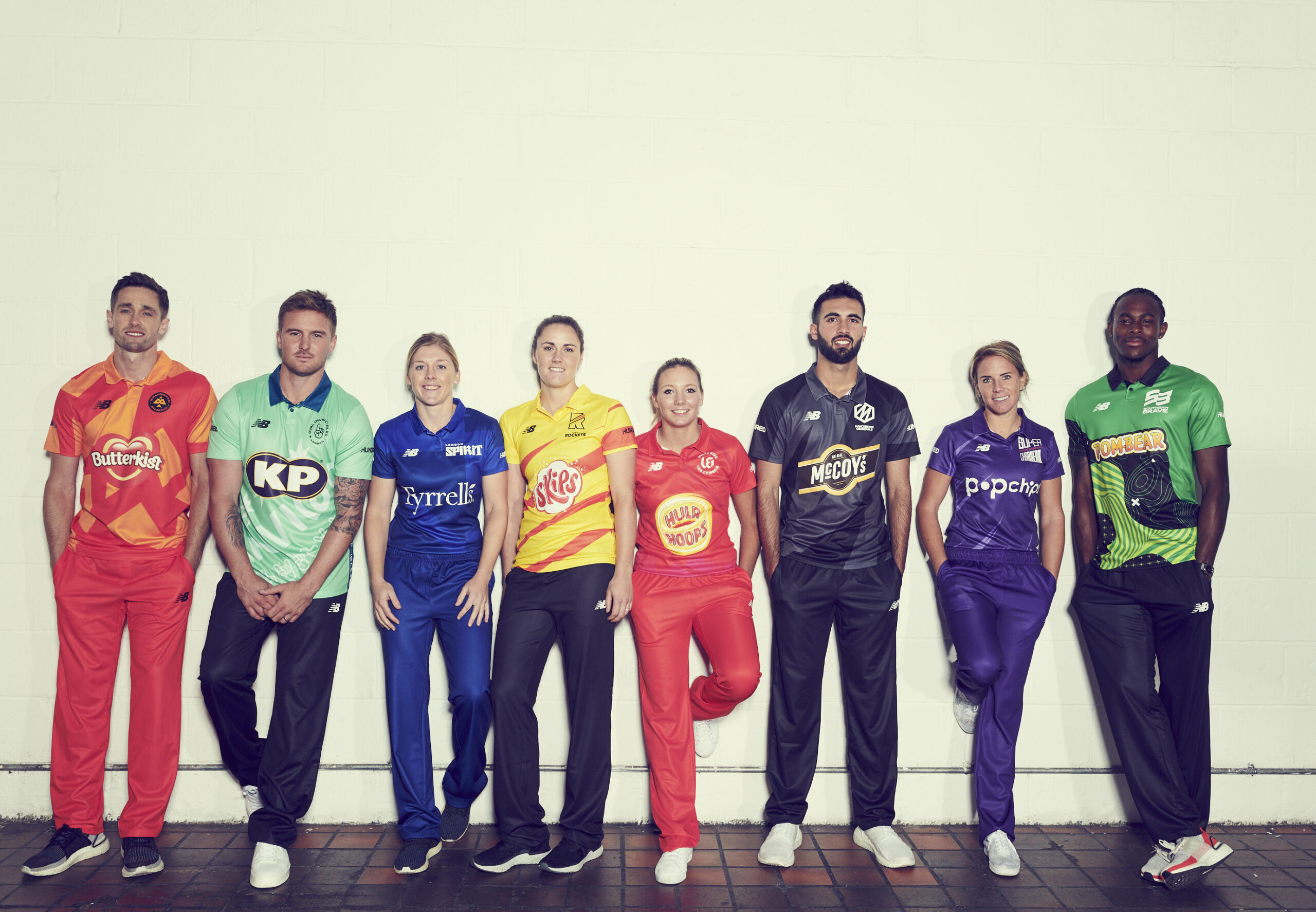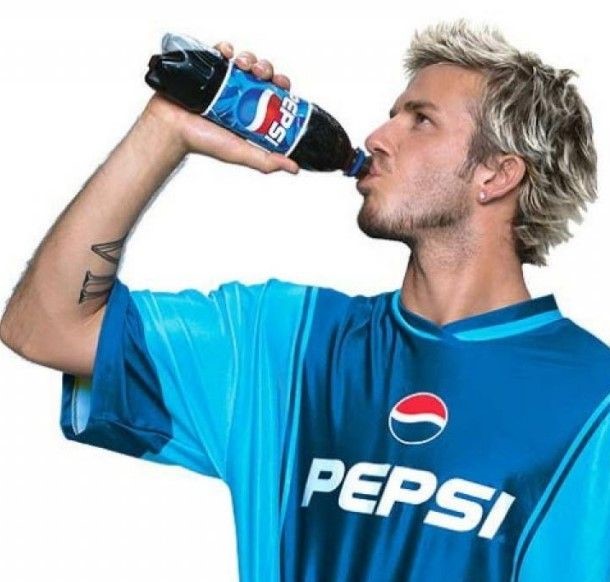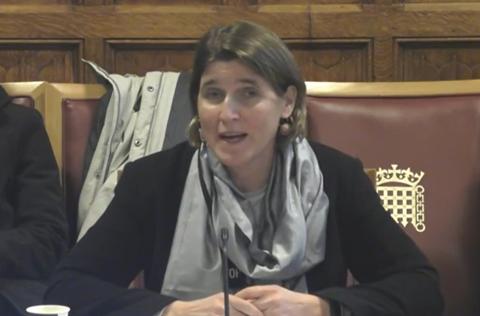04 March 2024
Disrupting the relationship between sports and junk food advertising

Guest blogger Grace Ricotti, Head of Health, Nutrition and Sustainable Diets at Marks & Spencer, and our Business Engagement Manager Chloe Mackean examine the relationship between sports and junk food advertising
Our food choices are shaped by our environment, and influenced by what is advertised to us, whether we know it or not.
Some forms of advertising are obvious, such as a poster at the bus stop or a TV ad, but food companies also get their brands in front of us through less obvious ways such as product placement and sponsorship deals.
Sport seems to be the area where sponsorship deals for food brands are most prevalent and have the largest amount of media.
We see them on arm bands and sports kits, wallpapering pitch-side interviews, or famously in the Coca-Cola/Ronaldo debacle, on the front of desks during pre and post-match press conferences.
Within the UK, 2020's year of sport highlighted to the country (and the rest of the world) just how much influence junk food (HFSS) companies still have within the sporting arena.
A report by Sustain and others looked at key sporting events that year, including the Tokyo Olympic Games, UEFA's Euro 2020 and a cricket tournament 'The hundred'.

Cricketers advertise a variety of crisps as part of their sponsorship deal with KP Snacks.
Food brands who had sponsorship deals in order to be associated with sporting clubs or individuals included Coca Cola, McDonald’s, Just Eat, Deliveroo, Cadbury/Mondelez, KP Snacks, Papa John’s Pizza and Carabao energy drinks.
But it’s not all doom and gloom. The report demonstrated that there is support and a desire for sports sponsorship to include fewer unhealthy food and drink brands, with 90% of people surveyed for the report agreeing the marketing of junk food through sport made it harder for them to feed their children a healthier diet.
The same year, BiteBack 2030 launched its 'PacketIn' campaign, which was led by young people and called on the England and Wales Cricket Board to end the relationship with KP snacks.
Demonstrating exactly this, in 2022 M&S Food kicked off its Eat Well Play Well campaign with the Home Nations Football Associations to inspire the UK to make healthier eating choices using the power of football.
With 79% of parents claiming their kids they would copy what their footballing heroes eat, M&S Food centred the Eat Well, Play Well campaign around its Eat Well range – a range of healthy products that are denoted by their yellow flower.
The refreshing campaign linked the eating habits of much-loved footballing heroes to performance, promoting positive healthy eating messages for kids in a way that’s engaging, relatable and helps drive change.
The M&S Eat Well Play Well campaign
At the end of August 2023, M&S Food produced its first ever Plate of the Nation report – a dive into the UK’s relationship with food and health and how it could help them meet their goals.
Research showed that only one in five people in the UK (20%) feel they have a consistently healthy relationship with food, more than half of British families surveyed (54%) feel overwhelmed by information concerning what a balanced healthy diet looks like and that nearly a third (32%) say they want easy to understand labelling, 29% want simple recipe swaps to make their meals healthier, and 17% want help from nutritionists.
Addressing this, M&S has its Eat Well logo, a health seal of approval found on more than 1,800 M&S products across stores nationwide, making it easier to identify healthy products and consume a balanced diet.
Every product with the Eat Well logo has a health benefit and supports a balanced diet. The logo has existed since 2005, but the Eat Well Play Well campaign has successfully increased customer and national awareness of the logo.
The Plate of the Nation report also discussed that while professional footballers have the ability to run up to 14 kilometres per match over a 60-game season, among the British public there is a much lower level of fitness and health.
26% of English adults are living with obesity, 38% are overweight, and one in three children leaving primary school are overweight or living with obesity and less than half (47%) of children and young people meet the current physical activity guidelines.

The soft drinks industry has used footballers to promote its products
Whilst fitness is undoubtedly important in sports, the M&S partnership highlights how important nutrition is and shines a light on our Home Nation footballers, what and how they eat to fuel their performance or support their recovery.
The campaign takes these learnings and demonstrates how they can be applied to everyday life, to help encourage healthy eating habits amongst young families.
Knowing that eight in 10 parents (79%) saying their children would be more likely to eat healthy food like fresh fruit, carrots and even brussels sprouts if they thought their favourite players ate them, this was the perfect opportunity to encourage a bit of pester power from kids to eat like their heroes.
Although we have come a long way since the early noughties when Beckham’s promotion of Pepsi barely raised an eyebrow, HFSS companies continue to have high visibility within sports clubs and people, pushing the false narrative that it’s ok to eat junk food if you’re exercising.
We’d love to see more food companies and Brands follow in M&S’s footsteps and promote healthy eating habits in sports.

Grace Ricotti is Head of Health, Nutrition and Sustainable Diets at Marks & Spencer, a role focused on ensuring M&S is at the forefront of healthy eating. With more than 10 years' in retail nutrition, she is experienced at translating nutritional science and customer behaviour to influence strategy, is passionate about driving evidence-based approaches and takes pride in advocating a balanced approach to health. Through encouraging the development of healthy and delicious products with credible, impactful communications, Grace aims to ultimately deliver better public and planetary health outcomes.

Chloe joined the team in August 2020 as Global Food Systems Project Manager, leading on The Food Foundation’s international work in the run up to the UK hosting COP26 and the UN Food Systems Summit. She is now the Business Engagement Manager, working with food businesses to encourage them to improve the healthy and sustainability of their portfolios. Before joining us, Chloe worked for the National Trust within the External Affairs team. During her time there she set up a knowledge sharing network for climate change professionals called 'Fit for the Future'. She also spent a year managing an organic farm and sustainability centre.




